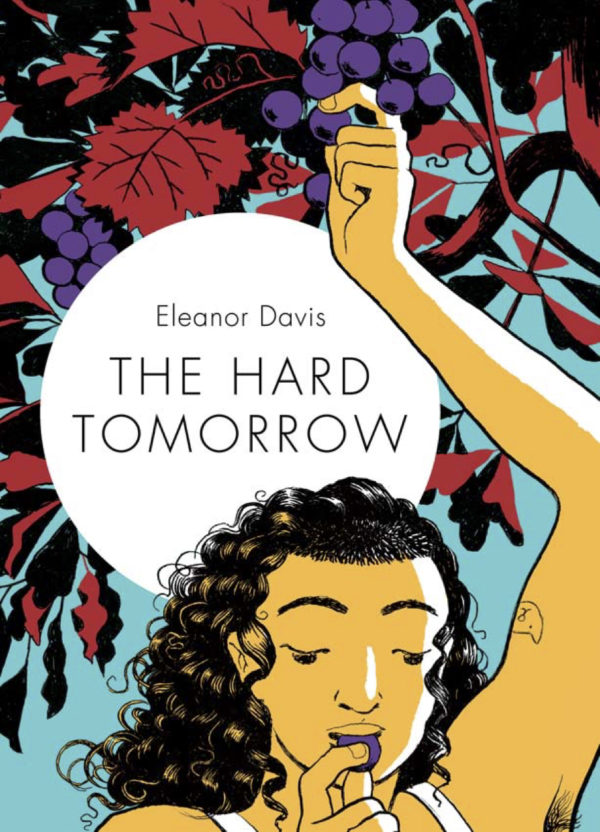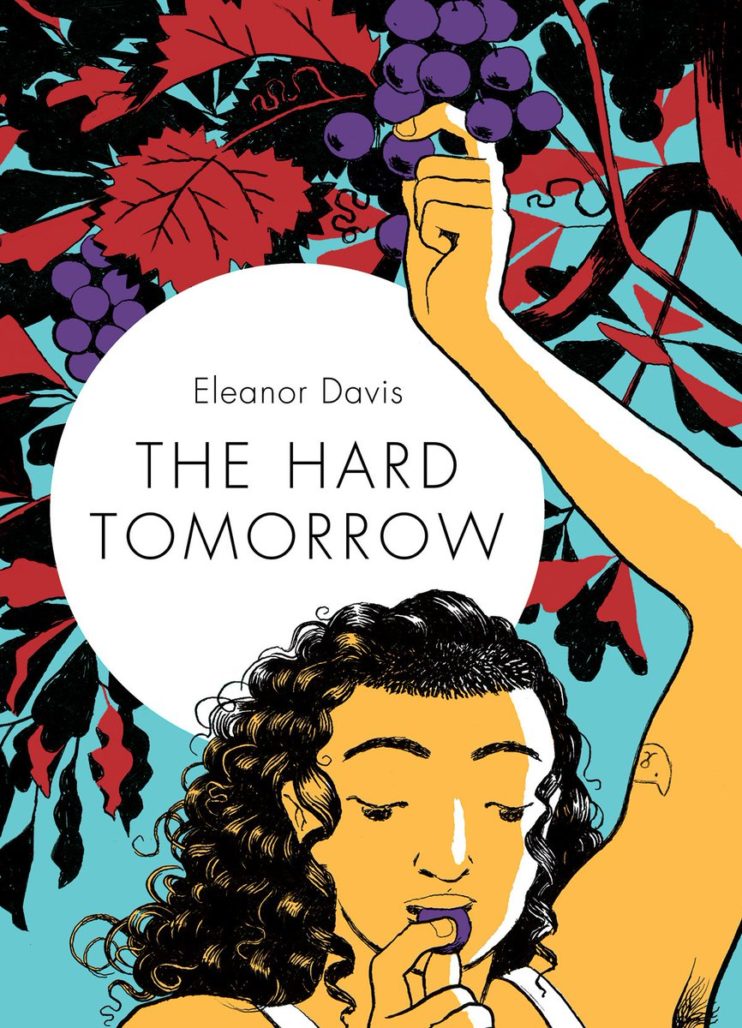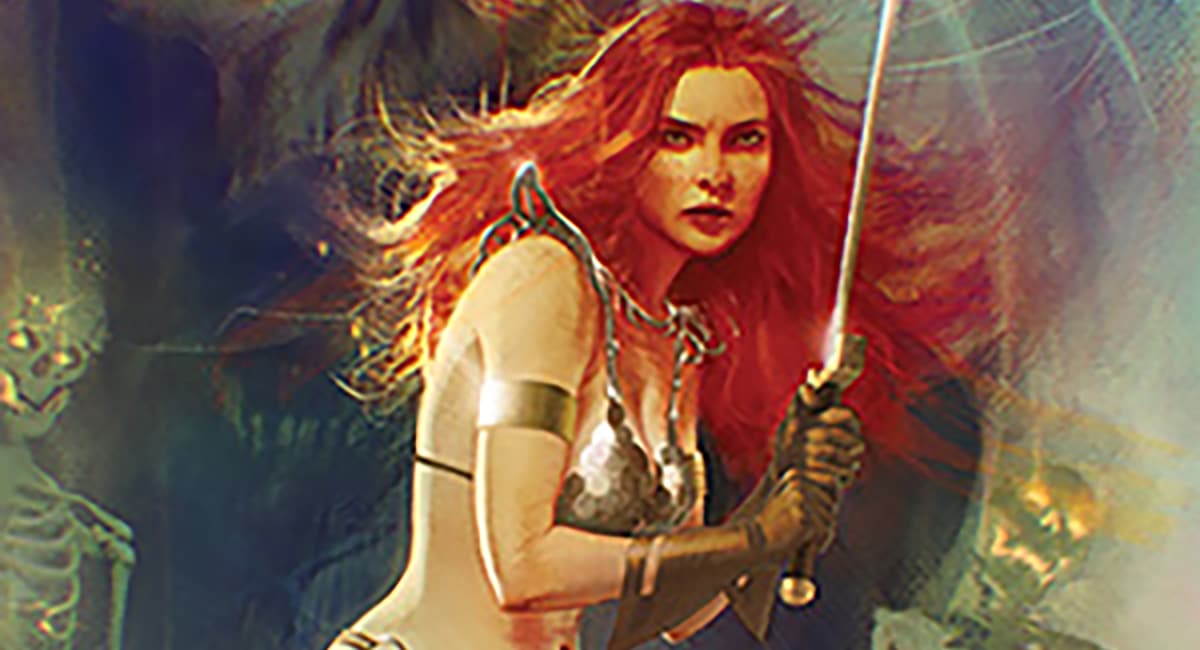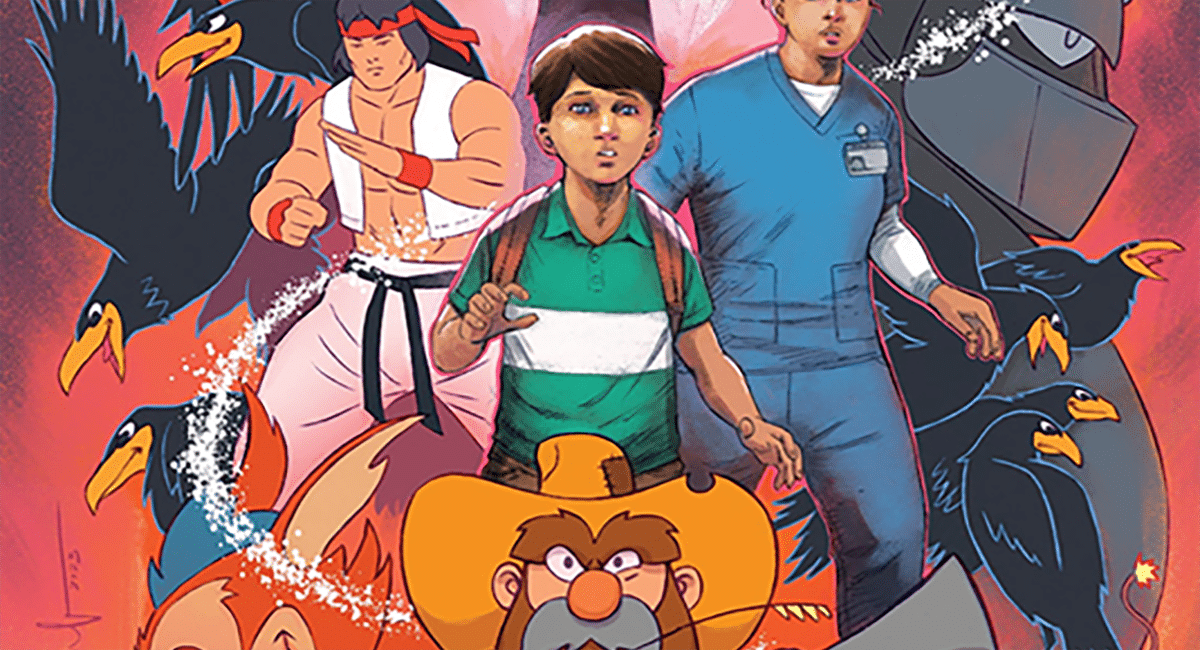Deeply emotional and gently relatable, cartoonist Eleanor Davis‘ graphic novel The Hard Tomorrow from Drawn and Quarterly separates itself from any other book this year in the best way by celebrating the strength in vulnerability. The story acts as a vignette for the story of Hannah — a political activist and home-health nurse — building a life and trying to conceive a child with her husband Johnny as they try to exist in a world that grows more and more unkind. But through the bleak reality that Davis brings to the forefront, the larger story sees each character branch off into their growth that creates a gentler, and kinder, version of what readers can hope for in the real future.
I sat down to talk with Davis last week to talk about the emotional labor that went in to creating something so personal; and ask about the reception of what is easily her most intimate book yet.
Chloe Maveal: The book feels like it’s at an intersection of genres. It’s full of political activism, queerness, slice-of-life honesty, romance, and — honestly — just a very gentle message of hope. Were you hoping for the messages to all come together in a way that made it so delightfully difficult to pin down?
Eleanor Davis: Maybe! I definitely didn’t intend for it to be defined. I suppose that’s probably really irritating for my publisher [laughs]. The way that I’ve come to think of it is a short story that got really long. I guess that’s why it has that genre-less quality. I think that’s how most short stories are often meant to feel.
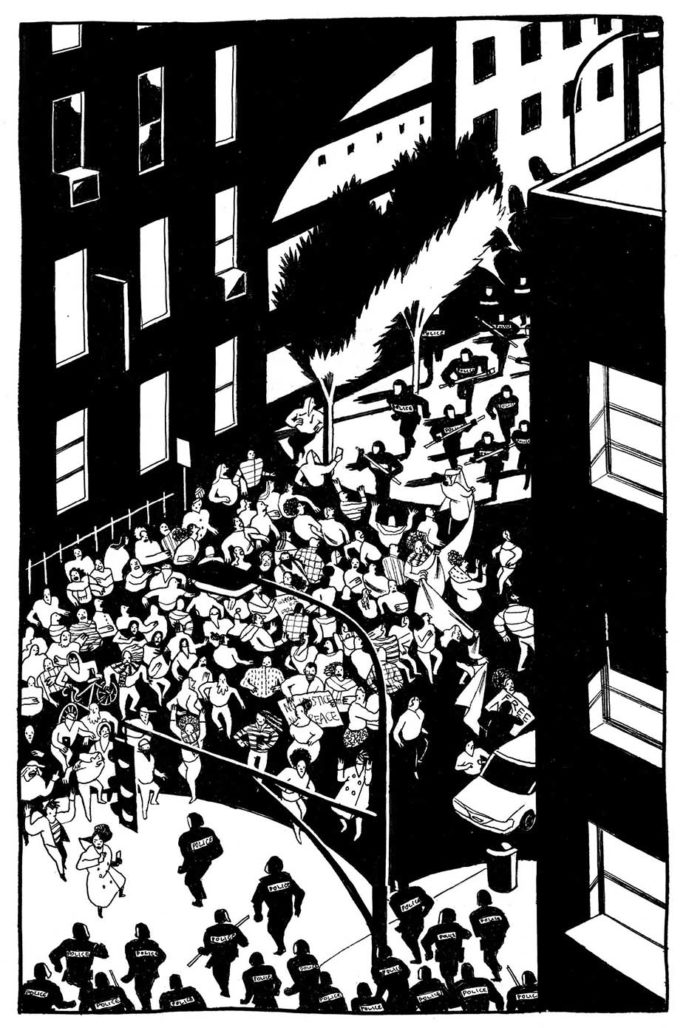
Maveal: With a lot of those themes came a hefty dose of political commentary. It’s a lot of subjects that hit really close to home and are similar to what we’re seeing in the current era of activism. How important was it for you to make this relevant to the now?
Davis: I think that was the intent from the beginning. I’ve been really surprised by the reviews where people think it’s more dystopian and less realistic than it was really meant to be. The dystopian aspects — or the aspects that are worse — are more subtle differences. I wanted to write a book about today, and my life; but I wanted it to have the flexibility of fiction. So trying to visualize our current time period by just a little bit — maybe just a couple of years — was what hit that sweet spot of wanting to show what’s happening. A lot of the issues of today are about how much fear they can give us for the future.
Maveal: There’s definitely an intersection of what there is and what can be expected at this point.
Davis: Exactly. To me it feels like we’re constantly living in two times at once; living in the now, and living in the unknown future.
Maveal: Can you tell me a little bit more about the relationship between Gabby and Hannah? It’s one of those relationships that, when you’re reading it, feels so complicated…but it’s actually something we see with friends every day that is incredibly simple and emotional. That seems like an overarching theme that you’ve used quite a bit in The Hard Tomorrow, but it feels especially strong in the relationship between the two of them.
Davis: I wanted to write a book about friendship and relationships and community, and how sometimes you can have needs that are met by one person that aren’t met by another person. Hannah does her activism work with Gabby and that’s not really something that she can share with her partner. I guess I just really wanted to write something about how powerful those relationships can be; how friendships can kind of get away from you sometimes.
Maveal: Well, that sort of acts as one of the peak moments of the book, doesn’t it? Their friendship comes apart because of the intensity of that connection.
Davis: I think that’s often the case with friendships between women, especially, because they can have an emotional component that can be really close and meaningful. That can make thing complicated sometimes. Way more complicated than anyone really intends for it to.
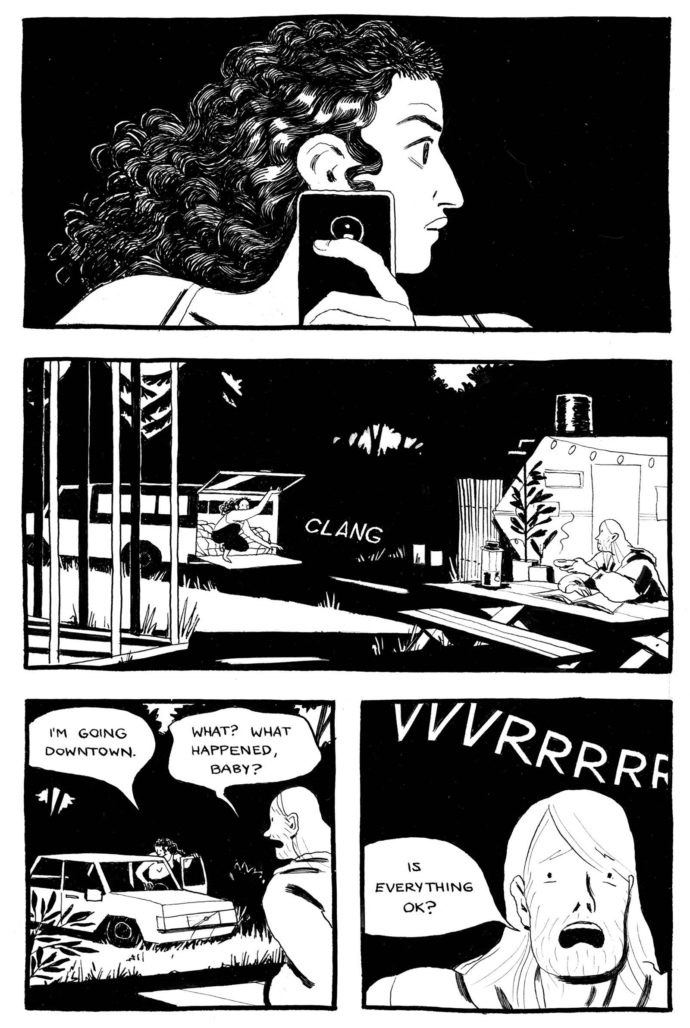
Maveal: I’ve been big fan of your previous works like Why Art? and You and a Bike and a Road. But this seems like an entirely different story — from a visual perspective — than anything we’ve seen in those other stories. How did you land on the decision to take a different artistic approach with this comic?
Davis: That’s a good question, actually. More than any others that I’ve done, this book was me trying to write about my actual lived experience and the world that I was seeing around me. But something that can be really frustrating about comics is that they’re often built to sort of cut away some of the individuality. There’s similar situations and similar faces used for all of the characters. There’s a lot of benefit to that because more people can see themselves in the characters when they’re more simplified. Not just in appearance though, but also in personality and in lifestyle, too. So I started realizing more and more that if you’re writing about normal people, you’re more likely to get readers being able to say that they relate. But then I realized that I don’t know any normal people — [laughs]. Like, I don’t know enough normal people to the extent that I don’t believe in the existence of normal people. There’s no such thing as normal. People are complicated and confusing and multifaceted; and yet I often fell into a style of writing and drawing that tried to smooth away those complications, and that made me unhappy. I wanted to write a story about the real people that I know, who are weirdos and queers and complicated and interesting people. I needed a more complicated art style to be able to show that. And honestly it comes down to basic differences! In previous art styles I was less likely to draw eyelids or noses, instead opting for dots for eyes and little button noses. But with this I really wanted capture the more complicated aspects of life from all angles.
Maveal: Taking it from that perspective, did writing this book feel more difficult for you? As you said, it’s much more personal and complex. Did that make things harder for you as you were trying to flesh everything out?
Davis: Sort of. Most of my stuff in the past has been short stories; and the way that I write short stories is try and have one central idea, and then wrap the rest of the story around that idea. So when I was working on this story — even just the very beginnings where it was just taking form in my head — it felt like I had several different short stories rattling around in there. Then I realized that they could all be interconnected. The work of weaving all of those things together was really challenging, but it also felt really good and like a leap forward in what I felt capable of doing.
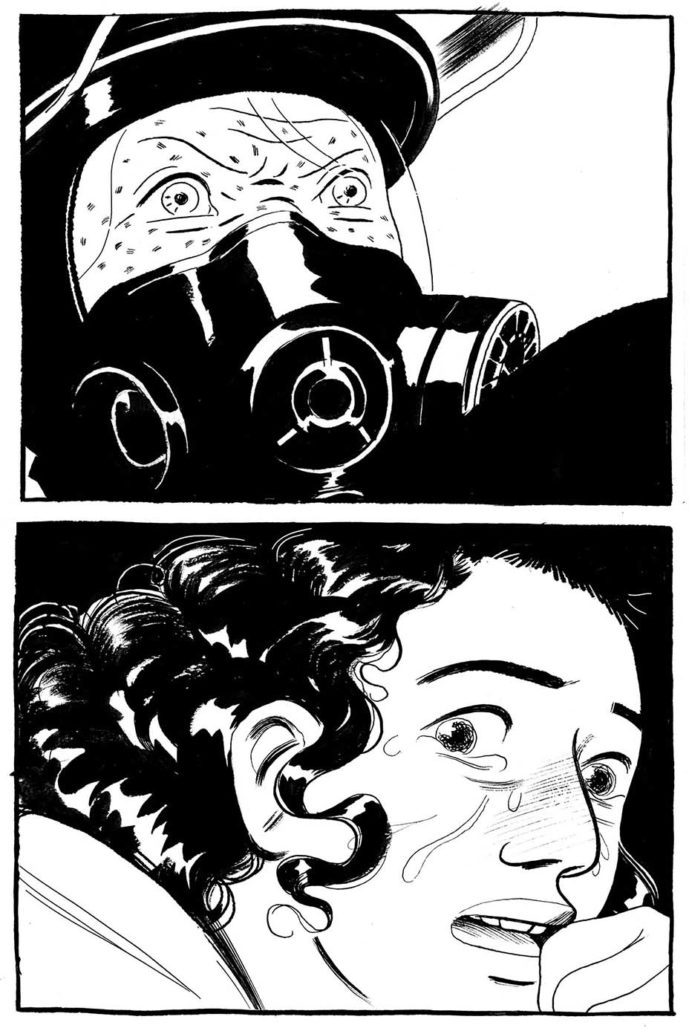
Maveal: There’s just so much emotional ground that you cover with each individual character, but it all feels very organic in the way that it come together that I’m pretty sure you succeeded.
Davis: [laughs] Well, thank you!
Maveal: Just as an example of one of the smaller parts of the bigger whole, the focus of the story is primarily on Hannah, but one branch coming from that was Johnny’s role in the big picture. It felt like there was a tenderness with which the idea of male vulnerability was handled, and how important that concept is. Can you tell me a little bit more about how you went about handling something so delicate?
Davis: I like Johnny very much. I like him as a person. The work that he had to do as a characters was kind of odd. His main brave act in the book was choosing to not be pressured into doing something toxic. I don’t know. I guess I just really feel for men. A lot of the time it seems like there’s so much pressure for men in this society to take on these toxic traits and energy, and it’s really difficult how much we underestimate how much strength it takes to reject acting in that way. So while Johnny — in a lot of ways — is an ultra-passive character, he does have to be very brave, reject the toxic pressure of his friend, and be vulnerable with his partner.
Maveal: If I’m being honest, the end of his leg of the story completely broke me. It was so important and moving. I found myself being very proud of Johnny as character for reasons I still can’t properly explain.
Davis: That was a really important moment for me, so I’m glad that you feel that way. I feel really proud of him, too. I almost feel a little bit sheepish of how, in the end, I feel very proud of him for something that should be no big deal. But it’s hard! It’s hard to be strong in that way when you live in a society that tells you that you shouldn’t be.
Maveal: Absolutely. And you’ve got so many other emotional shifts in the story, as well. The way you chose to end the story by featuring several pages of the long-awaited baby feels so gentle and kind. It was incredibly beautiful and optimistic. Was that the message that you came into this story hoping to give to readers?
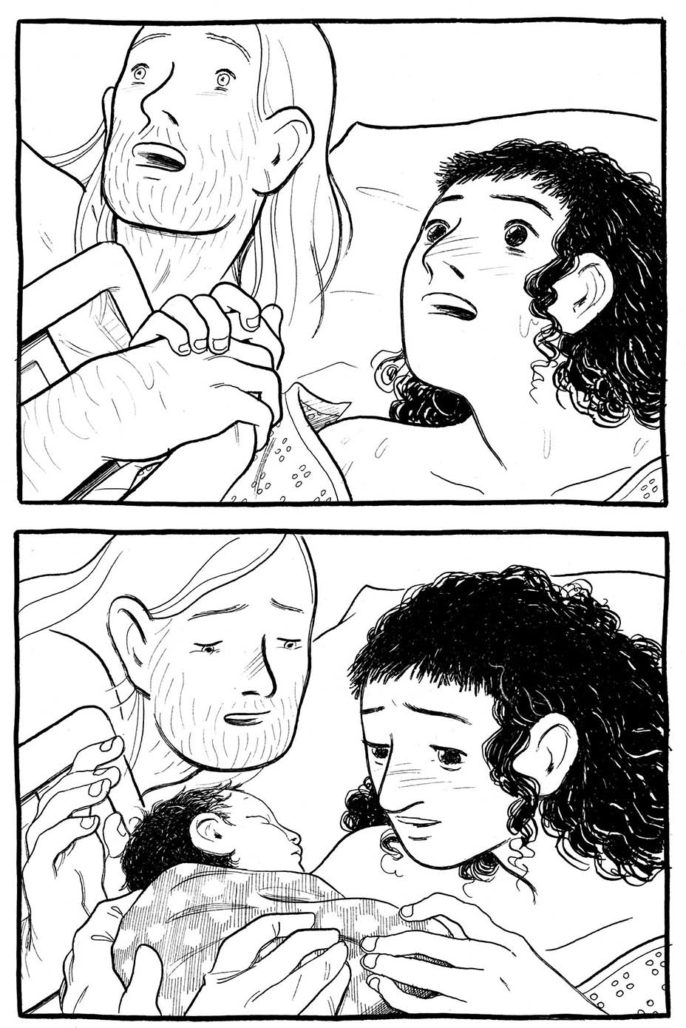
Davis: I think that it reads for different folks in different ways. For me it was both a really hopeful moment, and a really scary moment. The world that this baby is born into has not been able to heal and the baby doesn’t have the power to heal it. I think sometimes we put a lot onto young people and children to somehow address or fix the problems that we’ve created for them. So the baby is this very, very hopeful thing and also just a brand new little person who is more than a symbol. He’s a symbol of hope but he’s also his own individual being that is going to have to make his way in a very harsh reality.
Maveal: I actually have a seven year old kid, so I got done reading the book and just sort of went “OH.”
Davis: [laughs] Yeah. It’s hard to think about. I gave birth in July, and I came home from the hospital and got the first copy of the book in the mail. It’s complicated. Working on the book was me working through my ideas of wanting to have baby, why my husband and I wanted a baby; what that meant to us, and what that meant to the baby to be brought into this sort of world.
Maveal: I’ve managed to spill my feelings about your book all over the place during this chat and conversations like this are ripe with opportunities for me to do that more. I don’t think any of us want that! So instead I’d like to wrap things up by asking about the book tour for The Hard Tomorrow that you just concluded. How do you feel like the book has been received after getting to hear so many people’s responses firsthand?
Davis: I’ve been really touched by the responses. I’ve been so moved that so many people respond to the book with hope, and that that’s what they get from it. Especially hearing from other parents that have such a strong feeling of hopelessness and continuance. It’s been interesting. I did a lot of the tour without the baby, so that’s been an interesting experience; having to fly off and leave him at home with his dad. In the end — just on a person level — it’s been a really positive thing for me to be able to do something that honors my artwork right as I’ve had the baby because I know that I can still be what I want to be doing. Even after becoming a parent. But overall the response has been very touching. In a lot of my previous stuff, the feedback has been different readers getting the same message; but with this book it seems that everyone is getting something different. That feels very perfect somehow.
The Hard Tomorrow, published by Drawn & Quarterly, is available now at all good comic book retailers and wherever books are sold.


